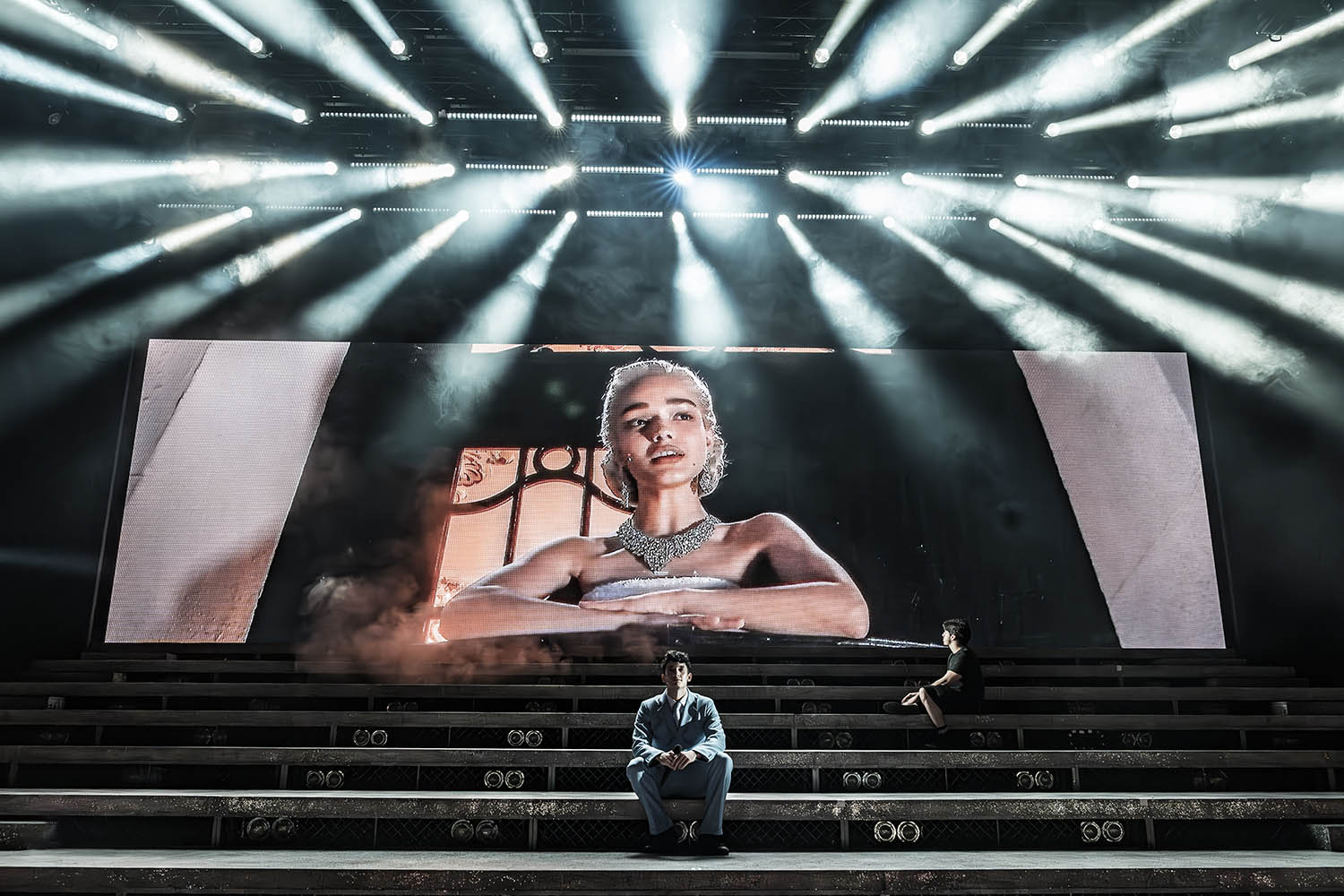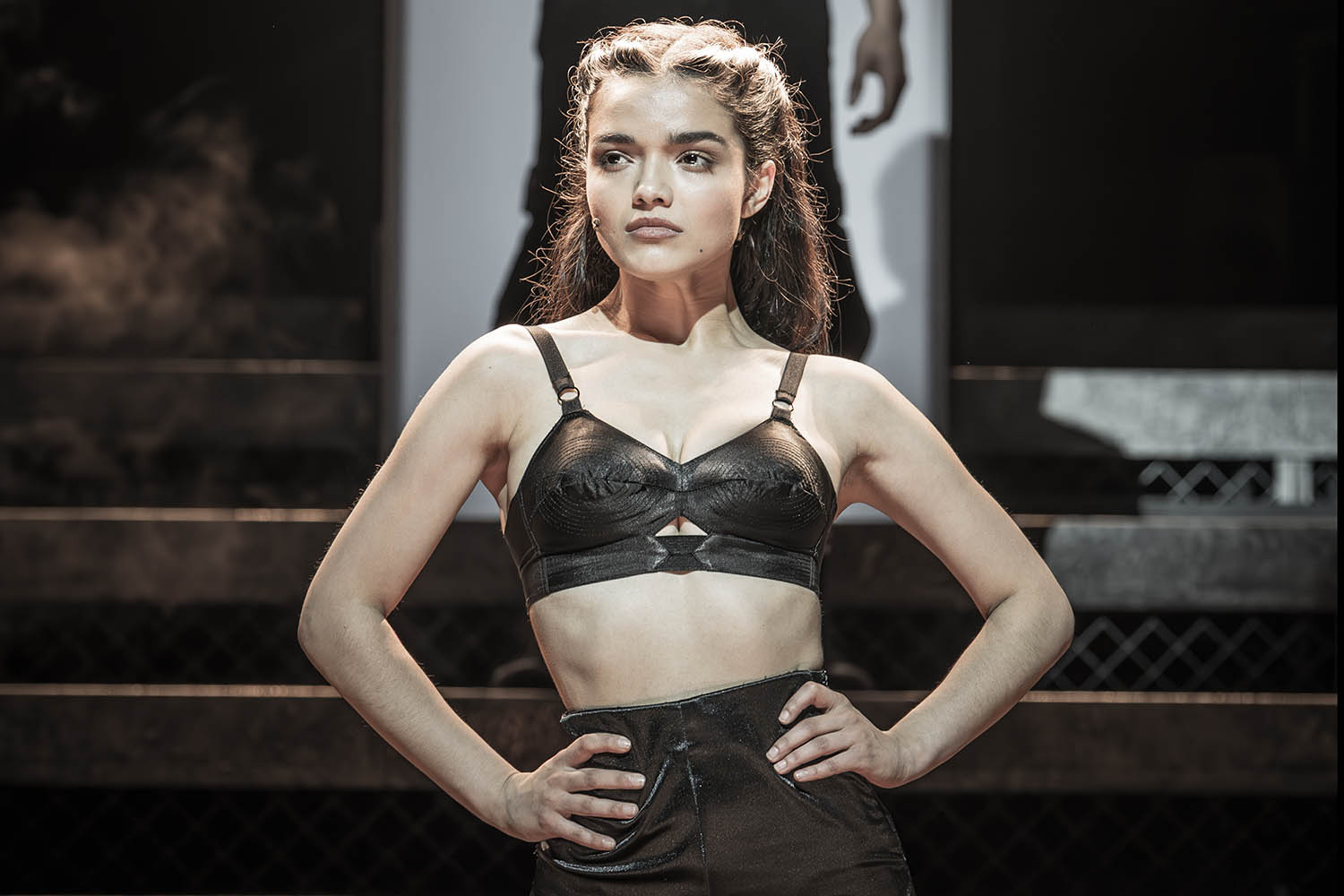A stifling city street lined with crowds of spectators, wilting, waiting in the hope of glimpsing their heroine from a balcony. She gives the struggling public something for free – a voice, a story – at a time when everything costs and many can’t afford such luxuries, turning her back on the upper-middle classes to do so. Do they feel cheated? Relegated? Nothing upsets them like the redistribution of assets. It was true in 1940s Buenos Aires and possibly in Soho on a summer evening last week.
This, of course, is the point of the latest theatrical stunt by the ubiquitous West End director Jamie Lloyd (Sunset Boulevard). In the second act of his typically audacious staging of Evita, the star of the show, Argentina’s first lady Eva Perón (Rachel Zegler), leaves the stage to perform the musical’s most beloved song, Don’t Cry for Me Argentina, from an external balcony to the street outside. Her face is beamed back inside the theatre via a live stream, broadcast on a wide screen. Some reports suggest, with rock-opera levels of melodrama, that this has left some ticket holders inside disappointed.
Which is strange, given it is easily the most evocative, intimate moment in a production that feels otherwise detached, far removed from its context. This is a musical about public adoration; here, shot from above in their hundreds, are the adoring public. It is epic, cinematic – lapped up by the film stars who attended the glitzy opening night on 1 July. They led an ovation, not for the first or last time during the evening. Though it’s hard to feel short-changed on a comp ticket, isn’t it?
Camera off, we return to the stage and to a world in which it is harder to orient yourself. In true Lloyd style, Soutra Gilmour’s set has a stripped-down, warehouse aesthetic; metal bleachers, cage panels, flashing headlights – a 00s music video with a big West End budget. There are handheld microphones, gold PVC jackets, the orchestra plays on stage behind a towering illuminated sign that screams “EVITA” as if this were her Vegas residency. All is fresh and entertaining – Peronism, but make it pop! – though it doesn’t help steer an uninitiated audience through the fast-moving, historical story that can be difficult to follow and, for young people, to situate.

Woman of the people: Rachel Zegler’s Evita is projected into the auditorium from an external balcony
Oiled torsos and gyrating hips stir up a Magic Mike revelry as ticker-tape streams from the ceiling
Oiled torsos and gyrating hips stir up a Magic Mike revelry as ticker-tape streams from the ceiling
Zegler, exuding all the “star quality” her character boasts, is well cast as a first lady-cum-rock pop princess, strutting around in her lace-up boots with Olivia Rodrigo pep. Her high-energy Perón is sassy and unstately – as perky as her conical Madonna bra but therefore not exactly rounded.
Zegler may be a true triple threat, but her voice is the most powerful weapon in her armoury: long-range, precise and devastating, soaring high and low, leaving the audience quaking. Bright in the head and full-blooded in the chest, it is rich and nuanced, much more expressive than her acting, which can feel oddly one-note. She simpers, hands on hips. She smirks, her brow overactive. “Share my glory, share my coffin,” she sings, with a dead-eyed expression I’m not sure is deliberately interpretive.
She’s lifted by Fabian Aloise’s electrifying choreography, full of twerking and tango, and a vigorous ensemble who add muscle (literally: oiled torsos and gyrating hips stir up a Magic Mike revelry as ticker-tape streams from the ceiling) to an at times thin rags-to-riches narrative.
Diego Andres Rodriguez gives it his all as Che, the narrator and voice of the Argentinian people, before collapsing in a pool of blood and blue and white paint. He slumps in front of Evita as she too lies dying, aged just 33, though it is hard to emotionally connect to the character, who, in this noisy production, is given little space to breathe. I didn’t cry for her or for Argentina. But her voice brought the people to their feet.
Evita runs at the London Palladium until 6 September
Photography by Marc Brenner
Newsletters
Choose the newsletters you want to receive
View more
For information about how The Observer protects your data, read our Privacy Policy

